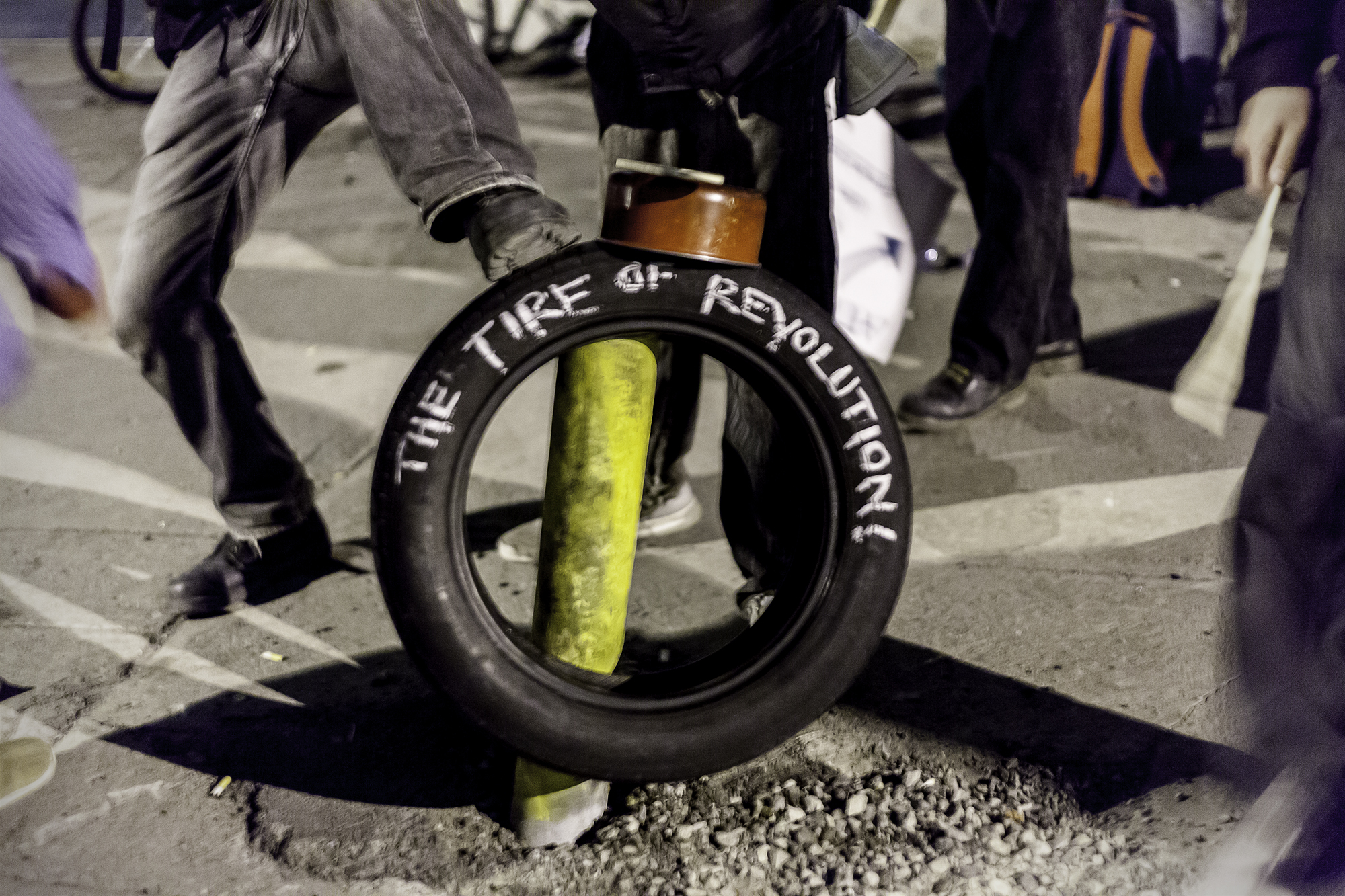It was a fairly normal Monday morning in April in Montreal. The sun was out, the streets were swollen with Montrealers eager the shed the layers of winter clothes and bask in the return of warm weather, and activists were occupying the office of a government MNA.
Monday the Organization populaire des droits sociaux – region de Montreal (OPDS-RM), a grassroots anti-poverty group, staged an occupation of the constituency office of PQ member of the National Assembly (MNA) Carole Poirier. Their gripe was with cuts to social assistance which they say will make it impossible for many of the most vulnerable in society to survive. Pointing specifically to the situation of single parents, members of the group pulled no punches in suggesting that the reforms will push more people into homelessness and threaten their ability to keep their children and themselves healthy.
A group of about fifty people hunkered down inside and outside the office for most of the day, with police keeping their distance as Poirier and her staff remained in the office with the occupiers.
I arrived shortly after 9PM, around the time a solidarity casseroles march composed primarily of members of the student movement arrived from the ubiquitous protest departure point of Place Emilie-Gamelin. The reinforcements were welcomed eagerly by the flagging occupiers. Around 10PM the OPDS-RM announced that they were ending their occupation, and leaving it up to the diverse group who remained whether they would continue.
They chose to do so, and as I write a contingent remain in the office, having stayed through the night with the MNA and her staff. Throughout the occupation has been peaceful, and respectful towards Poirier and her staff, who have engaged in many deep discussions of policy with various occupiers.
Poirier, the deputy speaker of the National Assembly, represents the economically depressed east-end riding of Hochelaga-Maisonneuve, where she won election in 2012 with 45% of the vote. In that election Alexandre Leduc, who is likely to ascend to the role of co-spokesperson for upstart leftist party Quebec Solidaire next month, was her only real competition. He attracted 24% of the vote, twice as much as the third place Coalition Avenir Quebec candidate, and with the benefit of increased exposure as spokesperson, and one of the best organized political machines in the city, he will have a strong chance of unseating her in the next election.
All of which goes to explain why, when I spoke to Poirier’s political advisor in the occupied office, he went to great pains to demonstrate his boss’ sympathy for the protesters.
He implied that Poirier opposed the changes to social assistance, but was prevented from saying so due to the neutrality expected of her in her role as Vice-President (Deputy Speaker) of the National Assembly. He also pointed out that the changes were not a fait accompli, but were currently the subject of public consultations and could yet be modified or scrapped altogether. I asked if he thought the occupation would be considered part of that process of consultation. “perhaps,” he replied in French.
What do you think of this tactic, of occupying an office to make a political point? I asked, again in French. “I think it’s a good thing” he responded.
He went on to tell me that Poirier and her staff would remain at least through the night, if the occupiers chose to stay, and that the police were keeping their distance at her request. He told me the occupiers had her blessing to remain as long as they liked.
Meanwhile, outside the office, the overflow occupiers were finding innovative and creative ways to amuse themselves as the hours dragged on. A discarded tire had been discovered, and coupled with a short pole on the sidewalk, its discovery led to a spirited game of ring toss, followed by several rounds of tug of war, with the tire in the middle.
While it it cannot be disputed that Poirier played the occupation perfectly, from a PR standpoint, the reasons for her doing so are fairly clear, and more self-interested than altruistic.
She knew that if she left the office, the police would move in. Given the tact and gentleness which Montreal police are reknowned for in their interactions with protesters, she could reasonably assume that any attempt by police to clear her office would lead to injuries and arrests.
In this uber-progressive rding, where the next election will be fought between her and Quebec Solidaire star candidate Leduc, any police repression in her own office would amount to political suicide. So her reamining in the office through the night and onwards is less a bold move, and more of a political neccessity. She dare not leave, meaning it will be up to occupiers when and how this ends.
Follow @EthanCoxMTL
Below is a video report on the occupation produced by my colleagues at CUTV.
Photo courtesy of Justin Canning.



